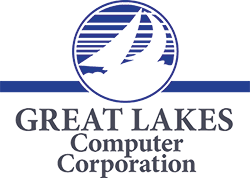 Moving your business to the cloud can reduce costs, streamline your business’ workflow and eliminate the need for an in-house IT support staff. The cloud also makes it easy for employees to work remotely and access information from anywhere with Internet access.
Moving your business to the cloud can reduce costs, streamline your business’ workflow and eliminate the need for an in-house IT support staff. The cloud also makes it easy for employees to work remotely and access information from anywhere with Internet access.
Although moving to the cloud is a no-brainer, choosing the right cloud service provider for your business is often more difficult. There are an increasing number of providers on the market today, and choosing the right one isn’t always easy. Today, we share an article from Entrepreneur about 10 questions to ask when choosing a cloud service provider.
1. Which cloud services do you provide?
Knowing what your cloud computing needs are will dictate the type of service or services you choose, says Nicholas Bessmer, author of Cloud Computing for Small Business (Amazon, 2013).
There are software-based cloud offerings, such as Dropbox for online document, photo and video storage. Intuit offers QuickBooks for online accounting. And there’s Salesforce for online customer relationship management (CRM).
If you need more than basic data storage, several vendors offer a range of general-purpose cloud computing services, including IT networking infrastructure with on-demand access to virtual servers, applications and software. These include IBM SmartCloud Enterprise, Amazon Web Services and GoGrid.
2. What is your pricing structure?
You should only pay for what you use, says Mike Foreman, a general manager at AVG Technologies, an Amsterdam-based internet and mobile data security provider.
Also, be wary of large upfront costs, which aren’t the norm for reputable cloud vendors, Foreman says. The pricing scheme should be pay-as-you go from the outset, with the ability to add services as needed. Fees can typically be charged hourly, monthly, semi-annually or annually, depending on the vendor. Pricing for cloud computing services can vary significantly, from as low as about $1 per month per user to $100 a month per user and up, depending on a company’s needs.
3. How secure is your cloud?
Security should be a major consideration when it comes to storing your company’s critical data in the cloud. Cloud providers should have several standard security measures in place and constantly update them, Foreman says. “You’ve got to be sure that you’re completely comfortable with your cloud provider’s approach to security.”
Security measures to look for include firewalls, anti-virus detection, multifactor user authentication and data encryption, and routine security audits. It’s also important to ask who at the cloud company will have access to your data in the cloud and whether the cloud provider does employee background checks to weed out potential cybercriminals or identity thieves.
Foreman says providers also should answer questions about compliance with government legislation specific to your industry. For example, if your business is in the healthcare industry, you’ll want to be sure your cloud provider is compliant with the Health Insurance Portability and Accountability Act (HIPAA), which deals with patient data privacy and security.
To read the article in its entirety, visit Entrepreneur’s website by clicking here.
Great Lakes Offers Cloud Computing Services
If you’re looking to move your business operations into the cloud, we’re here to help. Whether you’re considering a small step by moving your email server to Office 365 or you’re ready for our complete cloud solution, Great Lakes is ready to guide you and help you make the transition.




